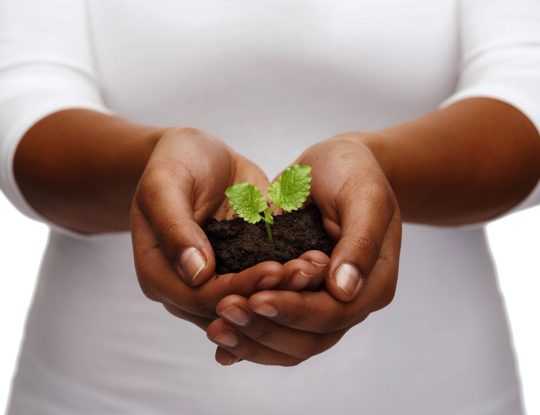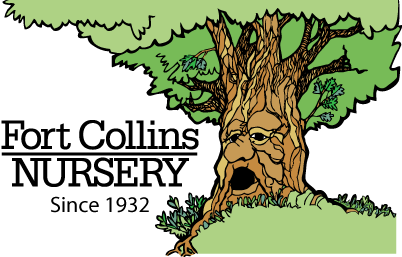By Jesse Eastman

When I return home from work I take a stroll through my garden on my way from the garage to the house where I find a calm moment for reflection in a world filled with chaos. Recently I’m finding myself thinking about how fortunate I am to have this refuge while so many people are struggling just to make it home every day. The layers of privilege I enjoy – what I’ve inherited from my family, my gender, and the fact that my white skin doesn’t present me with daily obstacles and risks – are all too easy to overlook. I work hard for my moments of peace, but the tools I get to use have been generations in the making.
Fortunately privilege is not some finite resource to be hoarded and protected. I am fortunate to have a soapbox, and maybe even a few people who listen to what I say. I don’t have a background in economics or social work. I am not a politician or a community organizer. I am a white male business leader who loves plants. That is the background that informs my perspective and the platform from which my efforts must grow.
As I embark on a journey of self-reflection, I face many hard truths about myself, my business, and the industry I love. My business depends on the good fortune and privilege of others, including homeownership, financial stability, and the luxury of spare time to spend gardening. This industry is heavily reliant on migrant labor, but opportunities for advancement beyond manual labor positions are rare. I’ve gotten to where I am while remaining largely ignorant of these sorts of challenges, and that makes it hard for me to understand what a satisfying gardening experience even looks like for someone whose skin color can be an obstacle in a world where, as Colah B Tawkin says, “…all the garden fairies and most of the gnomes are white.”
There are many resources I’ve found that have helped me understand how people from a wide variety of backgrounds engage with plants. Not only am I learning to appreciate horticulture in new ways, but I’m uncovering biases I didn’t know I had. This includes everything from what houseplants mean to different people to what food insecurity really looks like to how this industry can make sure career paths are not only available, but are made visible to Black people and people of color.
Sometimes these new perspectives focus explicitly on how race and horticulture overlap. Sometimes they’re simply fantastic horticultural resources that are written by Black people and people of color, with all of their experiences and perspective baked into their stories. Either way, if you’d like to get into the weeds on these topics (and I strongly encourage you to do so), here are a few resources gathered by myself and my staff that provide great starting places:
Books
- Wild Interiors and Wild at Home by Hilton Carter
- Farming While Black: Soul Fire Farm’s Practical Guide to Liberation on the Land by Leah Penniman
- The New Plant Parent by Darryl Cheng
- American Grown: The Story of the White House Kitchen Garden and Gardens Across America by Michelle Obama
- Rooted in the Earth: Reclaiming the African American Environmental Heritage by Dianne D. Glave
- The Good Food Revolution by Will Allen with Charles Wilson
- The Color of Food by Natasha Bowens
Podcasts
- Black in the Garden: The podcast that resides at the intersection of Black Culture and horticulture in a world where all the garden fairies and most of the gnomes are white.
- Edible Activist Podcast: Edible Activist is a podcast where dynamic people of color in the food and agriculture space share personal food journeys, stories and perspectives that stem from the land.
- The Afro Beets Podcast: The Afro Beets podcast explores garden to table content inspired by culture and soul and uses food as a tool to explore the African diaspora plants that will allow you to live your best life.
- Black Plant Chick Pod: Black plant mama Jade shares her plant stories through soothing and educational storytelling.
- @urbanfarmsista: ‘The Bug Lady’ Nadia Ruffin: Entomologist and Science enthusiast, founder of the Agricademy: Teaching youth about the agriculture industry through agriscience and career exploration.
- @SoulfireFarm: Farm committed to ending racism and injustice in the food system.
- @gerards_horticulture_culture: Exotic plant collector and enthusiast. Gerard offers his quirky brand of plant care tips with jazzy beats!
- @blackafinstem: BlackAFinSTEM is a group of unapologetically Black scientists studying topics in Science, Technology, Engineering and Mathematics.
- @reelsonwheels: Joseph Saunders, Black Birders Week Co-Organizer, Black Naturalist, professional photographer, paraplegic. This account will be dedicated to wildlife photography.
- @ronfinleyhq: Ron Finley, The Gangsta Gardener
TED Talks
- “A Guerilla Gardener in South Central LA” by Ron Finley
- “How to Grow Fresh Air” by Kamal Meattle
- “How Urban Agriculture is Transforming Detroit” by Devita Davison
Originally published on August 4th, 2020.
